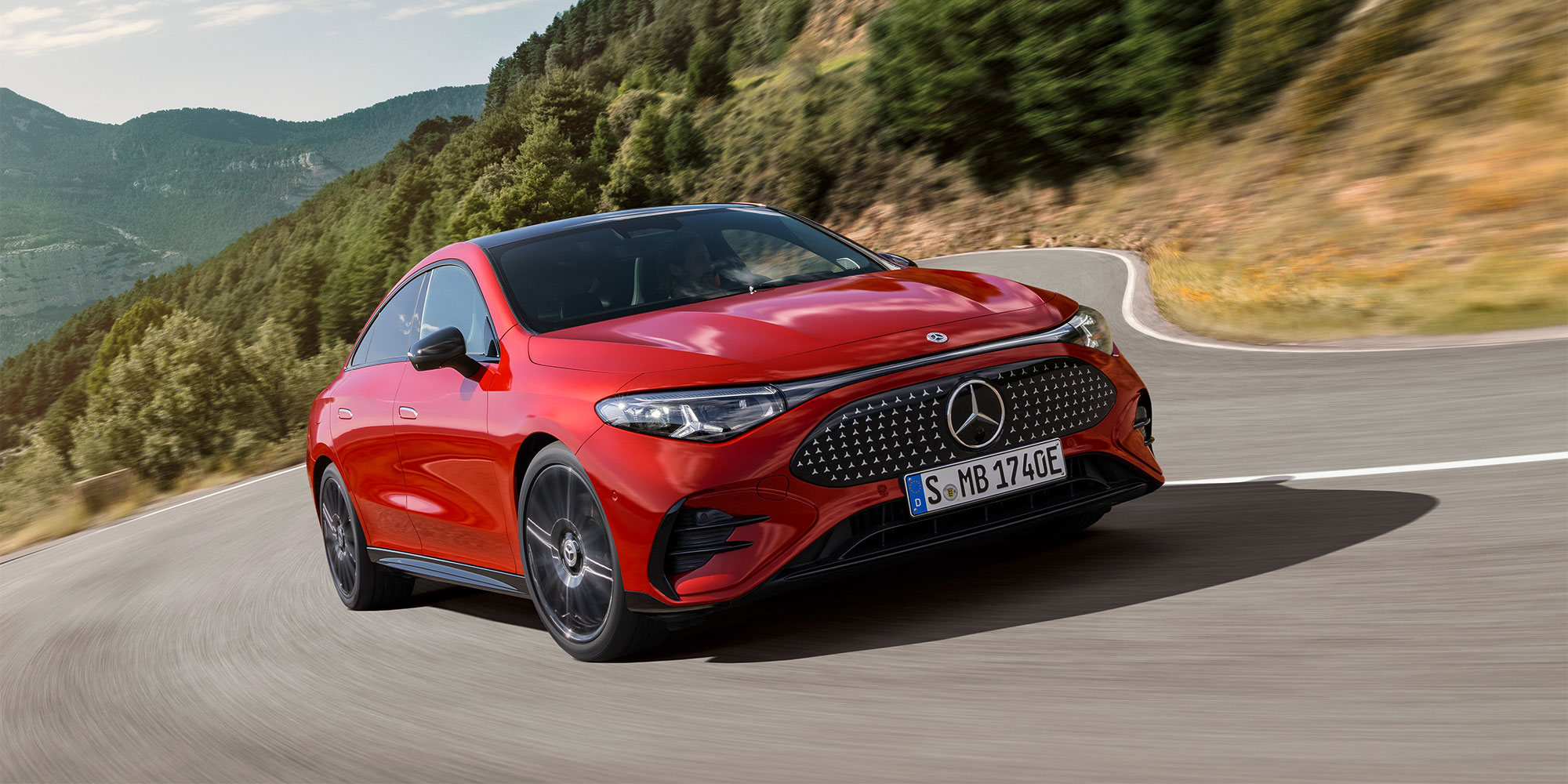By clicking a retailer link you consent to third-party cookies that track your onward journey. This enables W? to receive an affiliate commission if you make a purchase, which supports our mission to be the UK's consumer champion.
How much does it cost to charge an electric car?

In this article
- What it really costs to charge an electric car
- Typical electric car running costs
- Is charging an electric car cheaper than petrol or diesel?
- What is the most efficient electric car?
- Can you charge an electric car for free?
- How to get discounts on EV charging
- How much does it cost to drive 100 miles in an electric car?
- How long does it take to charge an electric car?
Electric vehicles (EVs) can be very cheap to run – but this largely depends on where you charge them.
If you have off-street parking and a home charger, you'll have access to the cheapest rates and will save a considerable amount of money compared with refuelling a petrol or diesel car.
If you don’t have a home charger or you're on a long journey, you’ll need to use the public charging network. This is typically much more expensive than charging at home – you could easily end up paying more per mile than it would cost to refuel a comparable petrol or diesel car.
Keep reading to find out all you need to know about how much it costs to charge an electric car. Plus, we reveal the cheapest electric car to run based on our lab tests and explain whether electric cars really are cheaper to run than other types.
EV and PHEV tax announced: find out how it will affect running costs
What it really costs to charge an electric car

Costs depend on where you're charging, the efficiency of your electric car and charging losses (the energy lost when charging your car).
Where you charge
It can be very cheap to charge at home, especially if you have an off-peak tariff that enables you to charge your car when demand for electricity is low (at night, for example).
While it can cost 7p/kWh to charge at home, public chargers can cost more than 10 times this – 79p/kWh is a typical price for an ultra-rapid public charger.
Public chargers may be significantly more expensive than charging at home, but there are ways you can reduce the cost slightly. Some EV charge card providers offer discounted rates at certain operators, while others reduce prices when there's a lot of electricity being generated by the national grid.
Below, we’ve detailed how much it currently costs to charge at service stations with different providers if you pay directly.
| Operator | Typical cost (per kWh) |
|---|---|
| Applegreen | 79p |
| BP Pulse | 85-89p |
| Gridserve | 79-85p |
| Ionity | 79p |
| Osprey | 82p |
| Shell Recharge | 59-89p |
| Tesla Supercharger | 22-52p |
Prices last checked 21/08/2025.
Slower chargers in residential areas typically charge around 43-63p per kWh.
EV efficiency
As with the familiar 'miles per gallon' (mpg) figure for petrol and diesel cars, the efficiency of electric cars can also be measured and is usually quoted in either 'miles per kWh' or 'kWh per 100km'. As you might expect, the more efficient your car is, the cheaper it is to run.
We give an overall efficiency figure for each electric car that passes through our intensive lab tests. Our lab measures the efficiency of each electric car in a range of driving scenarios and in exactly the same conditions, allowing you to accurately compare results across different models.
Charging losses
Because energy is needed to move electricity from a charger to the car’s battery, an electric car will most likely draw more energy to charge fully than the battery can hold. This is known as charging losses and is something we calculate when testing an EV. For example, our lab tests show that the 77kWh battery of the 2024 Skoda Enyaq L&K actually requires 88kWh to be fully charged when using an 11kW AC charger.
Should you buy an electric car? Read our jargon-free guide to find out
Typical electric car running costs
Below, we’ve given typical charging costs based on the average efficiency (3.18 miles per kWh) of all the different models and versions of EV we’ve tested, depending on where you charge.
Bear in mind that the energy price cap rose by 2% in October, so the cost of charging at home also increases.
| Where you're charging | Typical cost per kWh | Cost per mile |
|---|---|---|
| Home (off-peak/EV rate) | 7p | 2p |
| Home | 26p | 8p |
| Public ultra-rapid charging | 79p | 25p |
As you can see, the cost per mile increases dramatically when you charge at a public ultra-rapid charger.
For comparison, the cost to refuel a typical large petrol or diesel SUV is 15p per mile (based on paying 134p for petrol and 140.49p for diesel). So when using a public ultra-rapid charger, you’re paying significantly more to refuel.
Is charging an electric car cheaper than petrol or diesel?
Again, this largely depends on the electric car you drive and where you charge.
Based on our lab tests, we’ve calculated that if you pay more than around 43p per kWh to charge, it would be cheaper to run a non plug-in equivalent. However, the precise point at which electricity becomes more expensive than petrol or diesel depends on the car in question.
As an example, our lab tests show that large SUVs such as the BMW iX have an average efficiency of 2.94 miles per kWh. That means a car this size will typically use 1,769kWh over 5,600 miles (the average annual mileage from the latest Which? car survey).
If you were to pay 47p per kWh to charge, that would mean you’re paying 16p per mile, which is slightly more expensive (by 1p per mile) than the equivalent-sized petrol or diesel SUV. Of course, this would be the case only if you charged solely using public charging points.
We show you the EV models we recommend in our guide to the best electric cars
What is the most efficient electric car?
Mercedes-Benz CLA

Mercedes offers several electric models in the UK, although none have stood out in terms of efficiency in our lab tests. That's not the case with the CLA, though, as it's by far and away the most efficient EV we've ever tested. That's all the more remarkable when you consider that it's also the longest-range EV we've tested. Its 85kWh battery is one reason why it has such a high range, but its streamlined body and two-speed gearbox are some of the reasons it's as efficient as it is.
How many miles did Mercedes' CLA manage in our independent tests? And how does it perform in other areas? Read our Mercedes-Benz CLA Electric (2025-) review to find out.
Can you charge an electric car for free?

Although it’s possible to find free electric car chargers, they’re not as common as they used to be.
If you do find a free charger, it’s likely to be owned by a business, so you’ll probably need to be a paying customer to use the charger. And in some places, even though the charging is free, parking restrictions/fees may still apply.
Bear in mind that free chargers are also likely to be slow, so are usually only good for topping up your battery.
You can use services such as Zap-Map to look for charge points and filter by network, plug types, charging speed, payment method and more.
How to get discounts on EV charging
Having multiple accounts for different chargepoints can be a pain, so you might want to consider getting an EV charge card. These can be used with multiple networks and let you manage your payments in a single account, including getting receipts.
Some also offer time-limited discounts on charging, so you might be able to top up for less.
Popular providers include Octopus Electroverse and Shell Recharge. Some car manufacturers (such as Audi and Kia) also offer EV charge cards to customers who buy one of their EV models.
New to public charging? Read our guide on how to use electric car charging points

How much does it cost to drive 100 miles in an electric car?
Once you know how much it costs to run your EV per mile (as shown in all our electric car reviews), you can work out how much it costs to drive 100 miles (or any other distance).
For example, a 2023 Tesla Model Y Long Range AWD, which based on our tests has running costs of 8.78p per mile, would cost £8.79 to travel 100 miles if you charged at home (at a rate of 26p per kWh). However, if you charged at a public rapid charger (at a rate of 79p per kWh), 100 miles would cost £25.73.
How long does it take to charge an electric car?
The time it takes to charge an electric car varies, depending on factors including the charger speed, the maximum charge rate of your car and the size of its battery.
The charging times below are from our lab test results for the Tesla Model Y.
| Charge type | Charge (10-80%) |
|---|---|
| Three-pin mains plug | 38.5 hrs |
| 7kW home charger | 12 hrs |
| 250kW public charger | 33 min |
It's also important to note that electric cars often don't reach their advertised charge rate, and the actual rate will fluctuate throughout the charging process.
For example, the Hyundai Ioniq 6 has an advertised maximum charge rate of 350kW. But our lab tests showed that the rear-wheel-drive model reached a maximum of 235.7kW, although it still only took 19 minutes to charge from 10-80% (just one minute slower than Hyundai claims).
Can I charge an electric car from a three-pin plug?
If you don’t have access to a dedicated home EV charger, you can still charge at home via a 13A three-pin plug, but it's not recommended.
A spokesperson from safety organisation Electrical Safety First told us: 'Charging an electric vehicle using a standard domestic three-pin plug and socket isn't recommended for long-term use.
'These sockets aren't designed to handle the continuous high-power demand required for EV charging, and they can overheat over time, posing a fire risk, especially if extension leads or partially wound cable reels are used. However, if your outdoor socket has been specifically installed and designed for electric vehicle charging, it can be considered safe for use.'
Electrical Safety First strongly recommends using a registered electrician for all electrical installation work.
Compare car insurance
Find the right policy for your vehicle using the service provided by Confused.com
Get a quote now